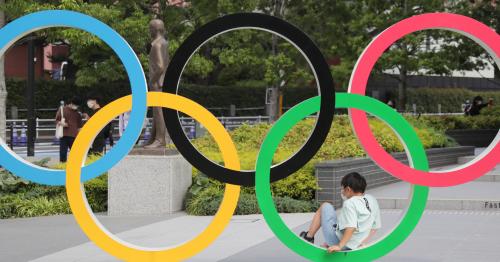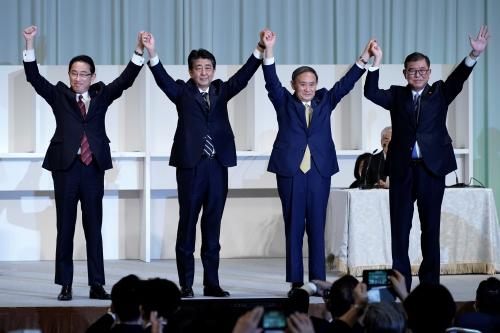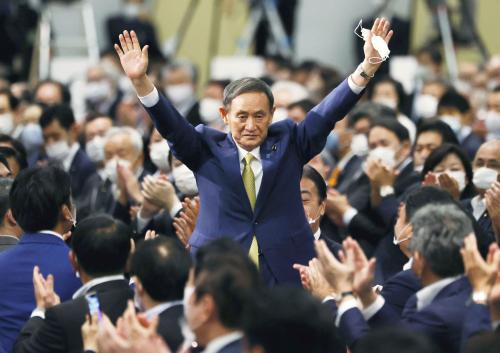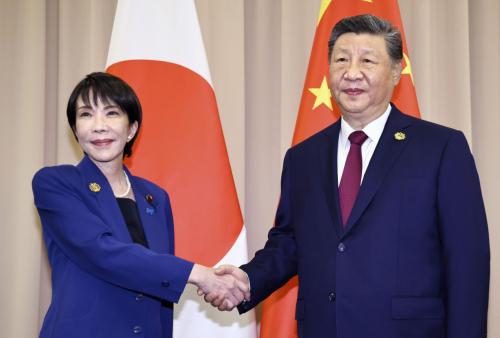The 2020 Tokyo Olympics were supposed to showcase Japan’s resilience in the face of major setbacks and be a crowning event at the end of former Prime Minister Shinzo Abe’s term in office, but the COVID-19 pandemic and a yearlong delay have threatened this narrative. Mireya Solís, director of the Center for East Asia Policy Studies at Brookings, joins David Dollar to discuss the political and economic background of these Olympic Games. Solís explains why it was important for Japan to tell a story of renewal after the Triple Disaster of 2011 and a period of economic stagnation. She also describes what the Olympics mean for current Prime Minister Yoshihide Suga and for Japan’s relations with other countries in the region.
DAVID DOLLAR: Hi, I’m David Dollar, host of the Brookings trade podcast Dollar and Sense. Today we are going to talk about the Tokyo Olympics and what they mean for Japan. My guest is Mireya Solís, director of the Center for East Asia Policy studies and holder of the Japan chair at Brookings. So welcome to the show, Mireya.
MIREYA SOLÍS: Thank you very much, David. It’s a pleasure to be here.
DOLLAR: So Mireya, you wrote on a recent Brookings blog that every Olympics has a story or a narrative, and I agree with that. This has been a long gestation Olympics. Before the pandemic hit, what would you say was the story or the narrative? How did this fit into Japanese politics and Japan’s story?
SOLÍS: Thank you, David. In the piece that you referenced that I wrote with Laura McGhee, the point we made is that in the beginning the narrative really was about recovery and renewal. Recovery from a major shock that Japan suffered with the Triple Disaster of 2011. There was an earthquake, a tsunami, and then a nuclear accident. And therefore, when Japan was making the bid in 2013, it was trying to tell the world that it was coming back from that major setback. That Japan was resilient enough and therefore that the world should come and see how much Japan had made progress in rebuilding. A robust Japan, a secure Japan, was the message.
There was also a storyline about renewal, which has been very important to Japanese politics and foreign policy. The idea here—what Japan wanted to tell the world, David—is that it was leaving behind the so-called lost decades when the Japanese economy had lost its way, when Japan had been paralyzed by political instability, and when that energetic Japan seemed to come to a sudden stop. Therefore, it was about showcasing the strengths of Japan, and it was also about showing the world that Japan had achieved political stability.
When Prime Minister Abe came to support very strongly the Olympics, he was also seeing in the games a legacy for him. As time went by and those Olympic preparations were moving forward, it was also the years when the prime minister stayed in power, so much so that he actually, in his second term in office, became the longest serving prime minister in the history of Japan. And the Olympics was going to be a crowning event of some sorts to that accomplishment.
The Brookings Institution is committed to quality, independence, and impact.
We are supported by a diverse array of funders. In line with our values and policies, each Brookings publication represents the sole views of its author(s).









Commentary
PodcastThe 2020 Tokyo Olympics were always meant to be a story of resilience
August 2, 2021
Listen on
Dollar and Sense Podcast